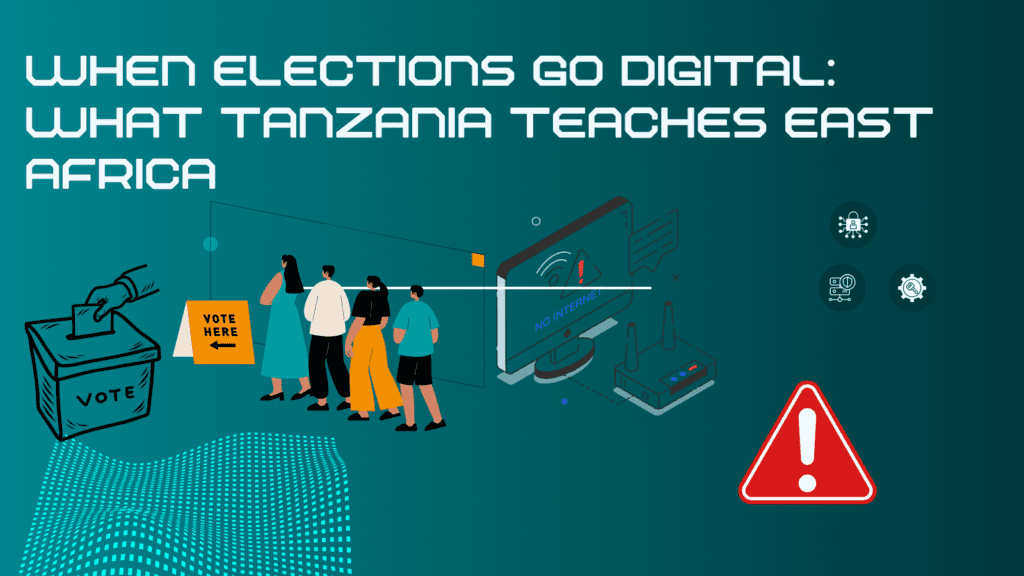In recent days, Tanzania has offered a sobering reminder of how fragile our digital freedoms can become during politically charged times. The country’s election season has been marked by internet shutdowns, platform blocks, and intensified online surveillance, a pattern we’ve seen before across Africa, and one that may soon echo in Uganda and Kenya as they approach their own elections.
For human rights defenders (HRDs), journalists, and civil society organizations, these disruptions are more than technical inconveniences. They directly threaten the right to freedom of expression, access to information, and participation in public life, the very foundations of democracy and accountability.
The Tanzania Experience: A Warning and a Lesson
Tanzania’s 2025 general election period has witnessed five days of nationwide internet disruption, blocking of major platforms such as X (formerly Twitter), and the removal of thousands of online accounts deemed “unethical.” Government agencies have also directed police to “patrol the internet” for misinformation, raising concerns about surveillance and intimidation.
These developments mirror a trend: in moments of political uncertainty, digital spaces become the first to shrink. Online expression is often among the earliest casualties of state control.
Yet, amid these restrictions, Tanzanian defenders have shown remarkable resilience — finding creative ways to communicate, verify information, and support one another even when connectivity is limited. Their experience offers crucial lessons for neighbouring countries preparing for their own elections.
Lessons for East Africa
1. Digital rights are election rights
When online spaces close, so do civic spaces. HRDs, journalists, and activists rely on the internet to document, mobilize, and advocate. Protecting digital freedom is therefore central to protecting democracy.
2. Prepare before the crisis
Security cannot begin when a shutdown starts. Organizations should review their digital safety practices early: update passwords, back up data, and train staff to use secure tools.
3. Plan for blackouts
Internet disruptions can isolate defenders and stall urgent communication. Offline strategies such as SMS alerts, encrypted offline messaging apps, or alternative networks should be ready in advance.
4. Inclusion matters
Defenders with disabilities face unique barriers when platforms or assistive technologies go offline. Accessible, inclusive security planning ensures no one is left behind in moments of crisis.
5. Solidarity is strength
Digital shutdowns are designed to silence and isolate. Regional cooperation — across Kenya, Uganda, Tanzania, and beyond — helps ensure that information flows, alerts are verified, and voices remain connected even under pressure.
As part of Protection International Africa’s ongoing commitment to the protection of human rights defenders,we continue to:
- Support training on digital security and resilience for HRDs across Africa.
- Facilitate regional coordination among defenders and organizations to share alerts and strategies.
- Advocate for inclusive digital policies that uphold rights for all — especially for women, persons with disabilities and marginalized defenders.
Our goal is simple but urgent: to ensure that defenders remain safe, connected, and heard — online and offline.
By Anastasia Oiro
IT and Digital Security Officer – Protection International Africa


